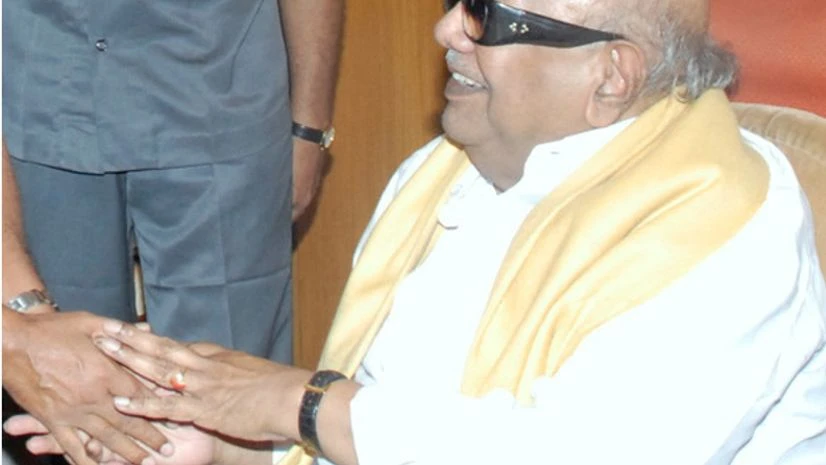If the intial trends are anything to rely on, for the first time after 1985, Tamil Nadu has voted in favour of an incumbent party, which has been a shock to those who were in Anna Arivalayam, the office of Dravida Munnetra Kazhagam (DMK) in Chennai. The party was expecting a victory against the All India Anna Dravida Munnetra Kazhagam (AIADMK) and the exit polls boosted this confidence.
Here are a few reasons which could have worked against the DMK in this election:
Lack of a strong alliance partner
Experts feel that one of the major draw back for the alliance in the State, especially when there is no major anti-incumbency factor. Whenever there is absence of an anti-incumbency factor in the State, a major alliance especially between the local political parties was the trump card which brought in the opposition to power in the previous elections, they say. For instance, in 2001, Jayalalithaa had a major alliance with Congress, Tamil Manila Congress, Pattali Makkal Katchi and the left parties. Similarly, DMK won the election in 2006 with a major alliance. If DMK would have joined hands with regional parties including Vijaykant's DMDK, they could have a better chance to win, they say.
Seat-sharing strategy
Also Read
The strategy of seat sharing also might have misfired, and the math went wrong with sharing almost 60 seats to allies. This means, in 60 seats, there was no DMK candidate or their symbol of Rising Sun, while people care only for the two major parties. This could have made the job easy for AIADMK in these seats, as every seat is important to win the election.
Jayalalithaa's welfare measures
Jayalalithaa's welfare measures seems to have worked magic. The welfare schemes under the brand Amma including low cost canteen, water, medicines, buses, cement, housing, free goats and cows, electronic items including mixies, grinders etc., are showing that it working in favour of Jayalalithaa. Even the public outcry related to the Chennai floods would have only made an impact in four districts. The law and order situation was better during the tenure, say experts.
The Stalin factor
Though DMK might lose the election, it should be appreciated that they have bagged a large number of seats even without a major regional alliance, said an expert. The credit goes to M K Stalin, who rose to the position of a popular leader probably next to Jayalalithaa and M Karunanidhi. He campaigned throughout the state and touched every point he had to to win the necessary seats. Wearing dresses such as trousers and t-shirts, which is uncommon among South Indian politicians, he made a difference to the scene. If DMK could have projected Stalin as the chief ministerial candidate with a big campaign on vote for change, it could have made a better result, they say.
Malini Parthasarathy, former editor of The Hindu, tweeted that DMK's failure to project a strong and decisive leader, with continued failure to resolve internal succession issue, ensured its defeat.
Image
DMK's image hit rock bottom almost five years back, with allegations and investigations against it and its ally Congress, especially in the 2G spectrum case. DMK, this time, again went ahead with an alliance with the Congress, which lost its popularity during the previous tenure at the Centre.

)
